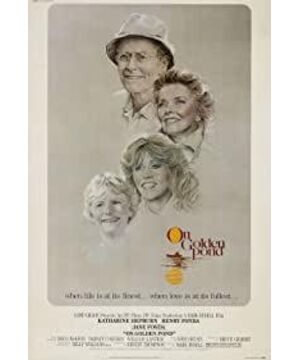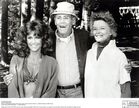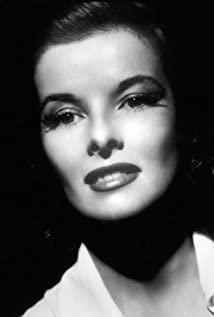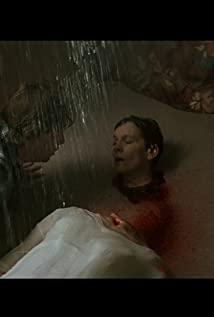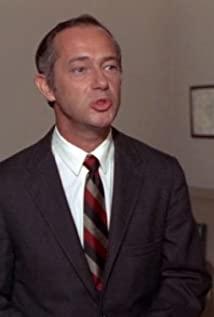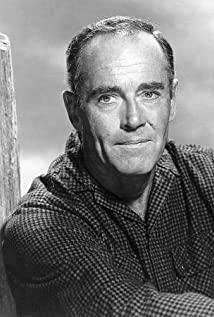Nominated 12 times as a queen, and added 4 times as a queen. Catherine Hepburn has won the respect and praise of Hollywood directors, film critics and audiences for her unremitting pursuit of drama and film art, transcendence symbolic screen image, and straightforward personality charm. She starred in the four Oscar-winning films-"Morning Glory", "Guess Who Is Over for Dinner", "Winter Lion" and "Golden Pond" spanning 48 years of film history, recording the ups and downs of the American film industry for half a century. Outside of the screen, the 26-year underground relationship between Catherine Hepburn and Spencer Cussey has transcended the shackles of the world and has become the most romantic love myth in the history of Hollywood.
Today, it is the 110th anniversary of the birth of "Your Majesty Catherine". In the name of tribute, let us visit the image landmarks that stopped in Catherine's life, trace the screen imprint left by Catherine's acting road, and jointly commemorate this sonorous rose who changed the world. .
Don't make vases: The Queen of Su Yan breaks the worship of beauty.
"I have an angular face, an angular body, and an angular personality. No wonder I always get into the glass heart of others."
Catherine Hepburn was born on May 12, 1907 in Hartford, Connecticut. Her father was a urologist and also one of the early pioneers in the field of sexual health. Her mother was a feminist activist, and she took her little Catherine to march on the streets with her little Catherine to fight for social rights for women. Growing up in such an open family that advocated freedom of speech and sexual liberation, little Catherine became crazy even afraid of herself. When other people's daughters were still being urged by the ruler to be arty, Catherine had long changed into shorts and cut short hair and rolled around in the mud with the young ladies. She named herself "Jimmy", loves winter swimming, golf, and even won the bronze medal in figure skating.
When she grew up, Catherine still had trouble changing her own image of a "female man". After entering Brian Moore Girls' College at the age of 17, she repeatedly violated school rules, ignored the curfew, and was suspended for smoking in the room. However, at this time Catherine fell in love with the performing arts hopelessly. In order to be able to enter the school club to perform, Catherine even reduced her sharp personality. In 1928, after receiving a degree in history and philosophy, Catherine started her acting career without hesitation, despite the opposition of her family.
"The audience after many years may not think that Catherine's "Han Dahu" feminist design is aggressive, but at the beginning of the conservative last century, Catherine suffered because of it. She entered Batty Moore's theatrical world in 1928, but The audience did not like her sharp voice. In desperation, Catherine had to follow a spoken language teacher to New York to develop. However, Catherine was late for her first performance in New York. Her amazing speed of speech, the "domineering" typhoon ushered in boo After the sound, she was fired immediately. In subsequent Broadway performances, many directors said that she was poorly mannered and lacking talent. The successive fired experience made Catherine discouraged. She married a wealthy businessman in 1928. I chatted with comfort, but the relationship lasted only a few months (divorced in 1934), Catherine found that her heart's direction was still the acting stage that made her awe.
In Hollywood today, the gender law of equal pay for men and women for equal work is still an open secret. In the past, once the actor signed a contract, he had the right to decide whether the heroine would stay or even decide who to kiss. In the 1931 stage play "Animal Kingdom", the protagonist Leslie Howard ("Gone with the Wind") was fired again because of her dislike of Catherine's wife. Just as Catherine’s career was in jeopardy, a character tailored for her appeared in time. This is Queen Antiop in the Greek fable drama "Warrior Husband". Catherine played a brave and fearless heroine. The heroic and vivid performance of Rai Dianhua immediately attracted the attention of Raidenhua, one of the eight major Hollywood studios at the time. After signing Rai Dianhua with a lot of money, Catherine became popular with the screen debut of "A Bill of Divorcement" (A Bill of Divorcement). Many directors and producers began to notice this non-feminine, and despise the wayward and strange woman in Hollywood.
After that, Catherine continued to interpret independent and strong female roles on the screen. First, she portrayed an aggressive and avant-garde female aviator in "Christopher Strong" (1932), and later with "Morning Glory" (1933). As the first actress in her acting career, Catherine starred in her true colors once again, vividly recreating the bitter road of "Little Stars on Broadway", still speaking fast enough to make the subtitles group collapse, still carefree Domineering typhoon. After winning the Venetian actress with the film adaptation of the famous book "Little Women", Catherine's talent for acting is obvious to all. Her weird and sharp New England accent, challenging the self-positioning of male authority was not pleasing at first, but his innocent and straightforward character, the uniformity on and off the screen, and the inadvertent humor and wisdom all make people can't help but applaud her. Hollywood seemed to have found "good-looking faces" and "interesting souls" overnight, and found the "different fireworks" that drifted apart from sexy labels and male vassals.
Look at the ups and downs with a smile: the wind and rain are only for the budding.
"Not everyone is lucky enough to understand how wonderful it is to suffer."
Stanley Kramer, a well-known pioneer of independent film and the originator of the Hollywood reality genre, once commented on Catherine: "Work, work, work, and everyone else is gone. She is still working." In all fairness, Catherine is not the kind to be able to With the help of talented actors who have played brilliantly on the spot, the praise and achievements are behind the hard work that ordinary people can't match. Before shooting, Catherine would study the lines and characters, and rehearse repeatedly in order to be full of emotions. He even ponders the lines of opponent actors, just for a perfect one-minute performance on stage. At the same time, she will also work hard on the logic of the lines and the plot arrangement and the director based on reason, even the technical aspects such as lighting, costumes, and mirroring are also supervised. Perseverance in art is not only an important qualification for her to become a legendary actress, but also allows her to play well on the stage of "neural comedy", Shakespeare's drama, period movies, and serious movies. However, not everyone has seen Catherine's ten years of work in the audience. Her heroine's unshakable screen and life image still couldn't satisfy everyone in the last century when patriarchy was in power.
In the 1930s, with the three early works of "Divorce List", "Morning Glory" and "Little Women", Catherine Hepburn became the endorsement of acting and box office appeal, and Lei Dianhua was even more concerned about this character actress. Ruobao. However, Catherine was not dazzled by success. What she still yearns for is a theater stage where she can freely express performing arts. However, while she kept her original aspiration to work part-time in theatrical performances, the "Curse of the Shadow Queen" also followed her. From 1934 to 1938, she starred in a series of films such as "The Strong Son", "The Little Priest", "Heartbreak" and other films suffered terrible box office losses. In "The Biography of Sylvia", she played the role of a deceiver who pretended to be a man and played with Gary Grant on the same stage. The screen collision of a pair of golden boys and girls turned the film into a "golden plum god" in the 1930s. do". Afterwards, "Mary Queen of Scots", "Woman Rebellion", "Famous Street" and other films were inverted. During the period, only one "Lonely Heart" was more successful, and she was nominated for her second actress. However, the bad luck of "Curse of the Queen" did not end. In the audition for "Gone with the Wind," producer David O Selznick thought she was not sexy enough to play Scarlett Scarlett. Upon hearing this news, Catherine confronted Selznick face to face, but Selznick said: "My dear, you can't get along with sexy. Why do you let Brad chase you for 12 years?". "Catherine snapped back:" Well, David, there are always people who have a completely different understanding of sex than you! "
In 1938, Catherine starred in the classic "Neural Comedy"-"Nursing Stories" once again confronted Gary Grant. Catherine, who has always been a serious image of the world, showed unparalleled comedy talent, but the audience at the time could not accept this kind of advantage. The post-modern comedy style only pays back the box office. At this point, Catherine was completely reduced to a "box office poison" and her public image plummeted. Lei Dianhua even asked her to shoot a lower-risk B-level film. In a rage, Catherine threw $75,000 to terminate the contract with Raidenhua, and came to Colombia to find another way out. After the new film "Holiday" became a box office dud again, Catherine, who was completely disappointed in Hollywood, returned to the theater circle. A life trio of "curve to save the country, noble support, bottoming out" is about to bring Catherine back to the top.
In 1939, the stage play "Philadelphia Story" starring Catherine was a huge success. The legendary wealthy businessman Howard Hughes had even bought her the film adaptation rights for her, as a return ticket for Catherine to return to Hollywood. The leader of the eight major studios-MGM and Catherine reached an agreement to personally select the director and actors of the film version of "Philadelphia Story". In this way, the well-known female theme director-George Cook, directed by Gary Grant, The "Philadelphia Story", joined by James Stewart and other leading Hollywood stars, became one of the top-grossing films in the 1940s. With this film, Catherine was nominated as a queen for the third time. Catherine, who has returned to the front line, is no longer satisfied with passive filming. The forward-looking consciousness I want to shoot has long left many of the contending sisters far behind. In 1942's "Women in the Storm", she once again appointed the director and starring role, and also won a huge reward of $125,000 for the behind-the-scenes author. The film not only won box office success, but also Catherine's fourth nominee for the film queen. The spark-splashing screen play between her and the male number one Spencer is comparable to the "Astaire Rogers" pair of golden boys and girls, creating another legendary combination of film history.
Since entering Hollywood in 1932, Catherine's screen image is almost exclusively an "Iron Lady" who fights against the patriarchal society alone. She also uses the game of rights and consciousness between the sexes as a humanistic proposition, creating a film genre that is ahead of the times. The appearance of Spencer gradually weakened Catherine's feminist stance. The two of them fought each other on the screen for joy, and finally returned to the family and ended in harmony between the sexes. Women continue to challenge male authority, while men give in and retaliate when appropriate. The subtle game relationship between the two is a sweet trouble that every ordinary couple will experience, and it can resonate widely among the audience. The subtle change in the image of feminism has been borne by the patriarchal forces. Let the Spencer-Catherine pair of screens become a box office harvester. From 1942 and "Women in the Storm" to "Guess Who Is Over for Dinner" in 1967, they have co-starred in nine films in 26 years, each of them It is a well-received and popular classic, and it also allows Catherine to completely get rid of the title of "box office poison". Especially in the 1949 romantic comedy "Adam's Ribs", the two are tit-for-tat in court. You come and I go, wherever there is a quarrel, it is clearly a crazy show of affection.
In fact, Spencer and Catherine did have a 26-year underground relationship. Spencer separated from his wife in 1938 because of alcohol problems and had two children. But Spencer, who believes in Catholicism, was unable to make a divorce move. In order to take care of Spencer, who was alcoholic and insomniac, Catherine slowed down her artistic pace in the 1940s, even in the 60s for 5 years, just to accompany her "wife" through the final journey.
Tireless hard work: 60 years of artistic life alone is the mainstay.
"Even if you hit the south wall and broke your blood, it is better than repeating yourself."
In the 1950s, when the screen goddess of the same age was old and declining, and her career languished. Catherine still maintains a strong work energy and desire to perform, constantly breaking through in new areas. The 43-year-old Catherine first plunged into Shakespeare's plays and played Rosalind in one of Shakespeare's four major comedies, "As You Like Me", and was lauded as "the only female stage artist in Hollywood." Later, she starred in "Queen of Africa" with Humphrey Bogart in the background of World War I, which was also her first color film. Catherine, in the film, played an old girl with her face facing the sky. Together with the drunk captain played by Humphrey Bogart, she composed a beautiful and moving love song on the battlefield. Shakespeare's stage plays and "Middle-aged Virgins" also became Catherine's artistic pursuits and screen patents in the 1950s and 1960s. The four Shakespeare plays of "The Merchant of Venice", "The Taming of the Shrew", "A Tit for a Tit", and "Anything Wrong" once again refreshed Catherine's artistic limit. At the same time, Catherine continued to express the loneliness and splendor of the middle-aged woman in "Summer Time", "Rainmaker", "Summer Crazy Soul" and other films. Time has given her not only the perfect acting skills, but also the Oscars. Favorite.
Fame for more than fifty years, Catherine has never known how many producers, directors, and males she has ever known, but she has never been jealous of talents and competes with her peers. Although she lost to Vivien Leigh in the audition for "Gone with the Wind", Catherine still maintained a lifelong friendship with her. However, in "Summer Fantasy" in 1959, Catherine was very uncomfortable with the goddess of "Jade Po" Elizabeth Taylor. The two golden age queens staged a "Random" style "Lan" on the set. Boudoir has changed”. Just like Betty and Joan's "Langui", "Summer Fantasy" is also a heavy and depressing thriller movie, which is about the femme fatale played by Catherine and the daughter-in-law played by Taylor in order to cover up her ugliness. There are even restrictive elements such as homosexuality, cannibalism, and lobectomy. Catherine, who has always been good at light comedy and showing the splendor of women, could not bear this style of painting, and the acting was very uncomfortable. And Taylor has been the goddess of the stars holding the moon since he was a child, and is incompatible with the female man Catherine. The tense confrontation between the two in the film also continued to the audience, and the cooperation was very unpleasant. The final reconciliation was due to the director bullying their common male best friend, Montgomery Clift, the male number one. The two united the front and threatened the director not to dismiss Clift with a strike. At the shooting scene, Catherine glared at the director Joseph Mankiewicz in front of everyone, and sipped to the ground. The relationship between her and Taylor became more peaceful after the filming ended.
In 1967, Catherine and Spencer collaborated in the ninth and final film-"Guess Who Is Over for Dinner". The two played an old couple in the film. The film focused on the sensitivity of "interracial marriage". The social problems caused a great uproar in American society at the time, and even completely ended the history of prohibiting interracial marriages in some states of the United States. However, seventeen days after Spencer's play was completed, the stubborn wife of Catherine on and off the screen died in her arms. Catherine didn't even dare to watch this movie because it was the "Last Supper" of the two. It is gratifying that Catherine won the second figure of the figurine by virtue of this film. Only a year later, Catherine turned her grief into strength and regained her title with "The Winter Lion".
Entering the 1970s and 1980s, Catherine has gradually faded out of mainstream vision, moved to the television, film and theater stages, and has been nominated for Emmy, Golden Globe, and Tony awards several times. And just when people are about to put a conclusion on Catherine's artistic life. In her early years, she once again shocked the film world with her old and strong acting skills. In 1981, "Golden Pond" starring Catherine and Henry Fonda became the runner-up at the box office of the year and organized the Oscars for Best Actor and Actress that year. In this film, we seem to have seen Catherine's tragic and splendid life, and saw her fading, wise and foolish philosophy of life.
When filming "Golden Pond", 74-year-old Catherine was already suffering from severe tremors, but she was still challenging her professional limit to take the lead. During the ten years from 1974 to 1984, Catherine put the focus of her acting career in the field of television, starring in "Mrs. Daraford's Marriage", "Laura Lanxin Sleeps Here", "Towards a New Life", " TV movies such as "The Remnant of a Star". After leaving the screen for 10 years, Catherine brought her curtain call-"The Love Incident". This is also the first time she has appeared as a supporting role since she became famous. The famous film critic Roger Ebert once commented: "This is the first time Catherine has shown the fragility of a woman in her life." It is also the first time Catherine has exploded American national curse in a movie. In 1994, Catherine presented her last work-"Buddy's Christmas". In this TV movie, she said the last film line of her life: "After I get old, I won't be the past Feel regret at any moment, and will not wish to change any thing that happened in the past..." Don’t be surprised
: only by following one’s heart can we live voluntarily
"I don't regret anything I have done, as long as I feel happy at the time."
Although she played the protagonist of a generation of children, Catherine has kept a distance from Hollywood throughout her life. When she first entered the industry, Catherine was still obsessed with free expression. The stage actors sneered at the glitz of Hollywood commercials. At first attracted by this huge industrial system, but soon recognized the cruel rules behind star making. Catherine does not accept media interviews, does not participate in celebrity events, does not sign autographs for fans, and does not even show up in public. From "Morning Glory" to "Golden Pond", she did not even show up for four Oscar awards. The 46th Oscar in 1974 was the only time she appeared on the Oscar podium. The purpose of this trip was also to present "Owen" to friends •G. Tolberg Memorial Award". It was at this awards ceremony that Catherine appeared domineeringly in trousers and became the first actress to wear trousers to attend the Oscars.
In private, Catherine stayed alive and rarely went to restaurants. Occasionally when going out, Catherine always likes to put her feet on the table and lie on her back. When asked why she did this, Catherine replied: "If my hips are not as high as my head, I can't digest anything. In addition, Catherine values personal privacy very much. Once a reporter took pictures without permission, Catherine was furious. Catherine smashed the opponent’s camera to pieces. The conflict between her and the media intensified in the 1930s when Catherine became a “box office poison.” When asked how many children you plan to have, Catherine replied: "Five, three A white man, two people of color.” The media predators were also quite dissatisfied with her rudeness and gave her the nickname “Katharine of Arrogance” (Katharine of Arrogance).
No fandai, non-marriage, atheism, support for abortion, fight for the right to vote, and various "exquisite egoist" images interpreted on the screen, Catherine set off a clear-cut in the era of patriarchal major studios. The feminist storm, at the beginning of the last century when "borrowing essence and freezing eggs" was still a myth, Catherine's view of marriage of "don't want a husband to have children" was well known. In terms of dressing, Catherine is also a pioneer of “anti-fashion” leading the world trend. She is the first actress to wear shorts on the screen, the first Hollywood actress to wear menswear in her life, and the number one. A queen in trousers attending the Oscars. She is also the first fashionista in film history to play Chanel, easily controlling a variety of Coco unisex items. In Scorsese's "Aviator", Blanchett, who plays Catherine, perfectly reproduces Catherine's "men's neutral style", bringing out the natural nobility, self-confidence and heroism between gestures.
对待爱情,凯瑟琳遵从本心敢爱敢恨,她的一生中有无数男人为她倾倒,包括潜规则不成反被她胖揍一顿的“好莱坞怪杰” 约翰•巴里摩尔,被她迷得言听计从The MGM boss, "King of Hollywood" Louis Meyer. After Catherine met the legendary wealthy businessman, Howard Hughes, he was not fooled by his gold and silver mountains, and even after Hughes helped her revive her career, she did not "pay the debt" as a general promise. In the end, she chose Spencer Cusser, who was complementary to her. Catherine recalled the first meeting between the two at MGM. That year, he was 41, I was 34, and Catherine in high heels said to Cusser, "For your In terms of size, I'm too tall, Mr. Qusser." She didn't know that her dirty nails lowered her impression. Spencer also suspected that she was a lace edge. However, it is this same pair of happy friends who have written a lingering love legend. Spencer has never really divorced in 26 years. Catherine has no complaints and no regrets, following the "husband" wandering around the world without any name until The death stick beats the mandarin duck.
In the treatment of career, Catherine was slightly injured but not below the line of fire. In 1976, when she was more than sixty years old, she broke her ankle while touring the stage play, but she insisted on finishing the show in a wheelchair. In the autumn of 1982, Catherine suffered a serious car accident and almost lost a foot, but by the end of the year, she appeared in front of the audience vigorously. When filming "Queen of Africa" in the Congo, Catherine suffered from severe malaria due to inadequate soil and water, and contracted dysentery from drinking raw water, and her face was haggard and still working with illness. Catherine always keeps the stills from her another "Golden Plum God", "The Strong Son", always reminding herself to guard against arrogance and impetuosity. She once said: "I do not want the image of a weak woman show to everyone, if one day I feel useless, I will find the most appropriate way to end their."
And a lot of big Hollywood stars stuporous, do not care Different, Catherine has a strong sense of social responsibility and humanitarianism. In addition to the early flag bearers of feminism, she is also an anti-apartheid fighter. You know, the 1950s was a period when McCarthyism was overshadowed. Everyone in Hollywood was in danger, and Catherine's pursuit of equality in society and the screen image became popular. But she was not afraid of intimidation and criticism from right-wing elements, and even named the chairman of the Furious Non-American Activities Committee and a member of the KKK, Parnell Thomas, and accused him of tainting the art of film. Catherine also starred in a 1944 anti-Japanese film of "Old and young men tearing devils"-"The Descendants of the Dragon", the film was adapted from the work of the same name by the Nobel Prize-winning female writer "Pearl Buck". Catherine played the role of "Anti-Japanese Girl" in the film "Xia" Xiaoyu called on the villagers to chop the devil's head with a big knife. In 1944, mainland China was in deep waters, and Catherine on the other side of the ocean used the perspective of a Westerner to let the whole world see how the Chinese descendants were neither humble nor overbearing in the anti-fascist war.
After half a lifetime of screen ups and downs, and tasted the ups and downs of life, Catherine, who has stepped into old age, is no longer the lone woman who was once sharp and defeated "male chauvinism", but her fanatical exploration of performing arts is ahead of the curve. Independent production consciousness" does not rely on the life creed of non-subordination, but has shaped the body and soul of women on the screen in the new era. Fragrant Xiaoyu Perishes-A
monument to a generation of
queens lasts forever "I am not afraid of death, it should be like a long sleepless dream, beautiful and illusory."
On June 29, 2003, Connecticut lowered its flag at half-mast for its most proud daughter, Catherine Hepburn. Catherine, who died at the age of 96, had instructed her family to keep things simple and not to hold a memorial service. People from all walks of life who were in deep grief expressed their cherishment in short speeches. U.S. President Bush and his wife Laura sent a telegram of condolences, praying for the national treasure queen. "Yu Po" Elizabeth Taylor called her "a role model for actresses all over the world, elegant, wise and charming." The media, film critics, and film scholars highly praised her personality charm: "Under the leadership of Catherine, more and more independent women are beginning to bloom on the screen. She has a moving face, but she never eats with her face. "The Los Angeles Times" wrote: "She is not only a screen queen, but also the patron saint of independent women in the United States." At the same time, the Venice Film Festival Organizing Committee immediately decided to show Catherine's masterpiece " "Sunny Sky", cherishes the memory of the immortal ICON who has changed the world with images from his lifetime.
The 96-year-old Catherine left us forever and embarked on a new journey to heaven, and when she reached the other side, perhaps the movie was no longer the whole life, because the one who smiled and beckoned to her was to embrace her again. Embrace her, and make an appointment with her stubborn wife Spencer
who will be a husband and wife in the next life...The legend ends: Who will become the next "His Majesty Catherine"?
In 66 years of acting career, Catherine Hepburn has only appeared in 44 movies. Compared with the legendary Hollywood actresses who have more than 100 of her time, Catherine's selection of films is more cautious and more artistic. After she is a resident in Cannes, Venice and other art film festivals, she has been nominated for 5 times at the British Academy of Film Awards and won twice. In the television industry, 1 of 6 Emmy Awards and 2 Tony nominations have achieved remarkable results. And her most eye-catching honor happened to come from the Hollywood that she disliked for a lifetime—12 nominations for queens. The four queens have no one in the past, but the ones who have never come back are unknown. So, whose artistic achievement is closest to Catherine, who will become the next "Majesty Catherine"? (This list only involves the nominations and awards of
actresses ) Meryl Streep
There are still two queens, and the queen trophy owned by Aunt Mei can be equal to Catherine. The two had competed for the film at the 54th Oscar in 1981, and finally Aunt May ("French Lieutenant's Woman") lost to Catherine ("Golden Pond"). Now that Catherine’s screen legend has ended, and Aunt May’s career is in full swing, she has surpassed Catherine in 16 nominations, and she is likely to be a queen in the future. In terms of qualifications and acting skills, both of them were born in stage plays, and were able to navigate between commercial films, independent films, TV films, and literary films. In terms of social image, Aunt Mei also represents the progressive ideas of feminism and human rights, both in terms of artistic attainments and social influence, both are on par.
Betty Davis
Betty Davis ranked runner-up in the "AFI Centennial Actress Ranking", just behind Catherine. Both of them were not accepted by the secular aesthetics at the beginning of their careers, and both were representative actresses who relied on acting. Although one year younger than Catherine, Betty's strong personality and hot temper on and off the screen are on the same level as Catherine. The recent hot American drama "Rivals: Betty and Joan" shows the most pungent side of Betty's character in every detail. In terms of artistic attainments, Betty is the first actress to be nominated for 10 Oscars as a queen, and aspiring to be a queen twice. Before Aunt May, she was the golden age actress who had the closest artistic attainments to Catherine. From the data point of view only,
Aunt
Mei and Betty are undoubtedly two actresses who can equalize with Catherine, and other actresses who are still alive or active after winning two films, such as Jane Fonda, Judy Foster, Sally Field, and Hilary Swank are all Aunt May's competitors. Of the five nominated actresses, Susan Sarandon has the greatest chance of being a queen. Four nominations include Cate Blanchett and Cate Winslet, who are possessed by Catherine in "The Aviator". Three times nominated Nicole Kidman, Julianne Moore, Jennifer Lawrence. Two nominations including Charlize Theron, Naomi Watts, Natalie Portman and other screen elders have the potential to accumulate in the future.
New stars born in the 80s and 90s
Kerry Mulligan, Jennifer Lawrence (3 nominations), Kristen Stewart, Michelle Williams (2 nominations), Rooney Mara, Emma Stone. These high-quality actors born in the 80s and 90s have excellent acting skills and do not choose the genre. Their artistic life is destined to be extraordinary from the beginning. Perhaps among them, we can have the honor to witness the next "Catherine Hepburn" screen legend.
View more about On Golden Pond reviews


